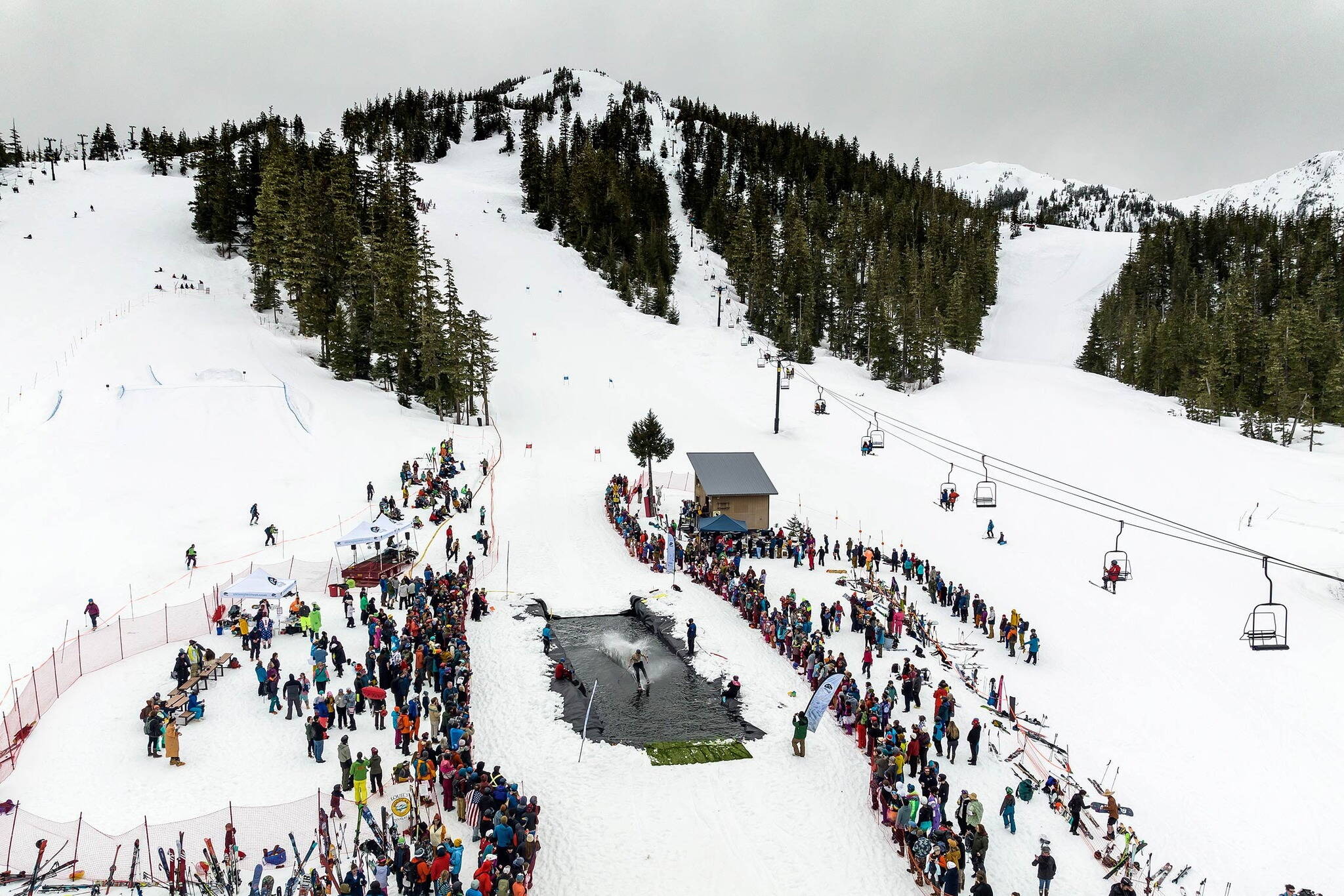Eaglecrest Ski Area saw a slight increase in income during the recently-completed ski season compared to a year ago, despite a late start to the season and some other struggles including an ongoing employee shortage, according to a report presented to its board of directors on Thursday.
“We are currently slightly ahead on revenue over last year despite having a slow start and finish in the kitchen due to staffing and a couple snowless weeks of icy conditions to finish out the season in March,” the report states. “Our price increases helped to keep revenue strong while having a dip in overall guest volume.”
It was about an average season in terms of number of skiers, although season passes were down and out-of-state visitors saw an increase, Eaglecrest General Manager Dave Scanlan said in an interview Friday.
“I’m going to guesstimate our skier visits are probably around 45,000,” he said, “Our total season pass numbers were down a little bit this year, but we have been doing slight price increases over the past couple of years.”
Visitors from outside Juneau are increasing by about 15% a year, Scanlan said.
“It’s something that we’re really focused on because we know it has a really good trickle-down economic benefit to the community,” he said. “Those outside visitors when they’re here usually they’re coming for a week stay, and they’re staying in hotels and Airbnbs, and they’re going out to eat and buying souvenirs.”
Eaglecrest opened on Dec 20, 18 days later than scheduled, due to warm and rainy weather hampering snowmaking efforts. There were other odd weather patterns during the season, including record snowfall in January along with some drenching rain during unusually warm periods, but Scanlan said overall he’s happy with how conditions and operations fared this season.
“We did end up having some big big rainstorms, but luckily the pendulum just kind of kept swinging,” he said. “So we had some massive snowstorms, followed by big rain, followed by more massive snowstorms, followed by more rain. So kind of at the end of the day thanks to all that man-made snow we did early in the year, we were able to sustain good snowpack through the warming events and then the natural snow events helped to build the base up.”
The report presented to the board shows about $1.76 million in ticket, ski school and similar income, compared to about $1.74 million a year ago. Food sales, ski rentals and similar income showed an overall decline.
One ongoing struggle this year was a shortage of employees. While wages increased by 3% overall this season, the total cost of staff didn’t increase by that much due to an ongoing shortage of employees, according to the report presented to the board.
“For the first year in a long time we were nearly fully staffed in our entry level front line positions, thanks to the J1 (foreign workers) program but suffered major shortages in some senior management and mid-level skilled positions,” the report states.
Scanlan said entry-level jobs were a problem the past two years, but the effort to lure employees from abroad and house them at the University of Alaska Southeast proved successful this year. However, “a varying number of factors caused some turnover in some of our middle and senior management positions.”
“So basically what that ended up doing is just putting a tremendous amount of additional workload on the remaining managers, myself included,” he said. “So thankfully I’ve got a really dedicated staff of the folks that are that were still with us in that senior level and they just picked up the pieces. So we were able to really shelter the public from any views that there was some struggles happening behind the scenes and made the trains run on time.”
• Contact Mark Sabbatini at mark.sabbatini@juneauempire.com or (907) 957-2306.

